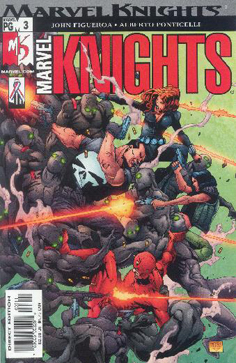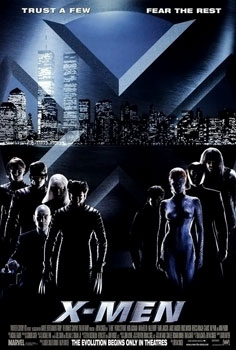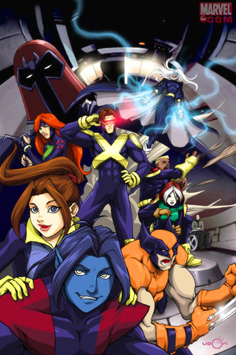Marvel History Part 7 - Millennium Revival
By Frederic Haddox
August 29, 2008 - 08:53
 |
The keys to Marvel Knight’s success include storylines that don’t interfere with the “actual” Marvel Universe, more edgy content and less involvement of top Marvel Comics characters. After much popularity, the series became a normal line under Marvel Comics’ production.
The most important factor that would definitely salvage Marvel Comics, as well as give it hope for the future was the New Line Cinema release of Blade. Blade, originally appearing in the Spider-man series, was a powerful half-vampire who dedicated his life to killing vampires. The enormous success of the film made Blade a franchise character. It also created a cinema fan base that eagerly awaited more films based on Marvel Comics’ characters.
 |
Soon major publishing houses owned subsidiary comic companies. Even though larger comic companies like DC and Marvel Comics had more experience, they still needed to remodel their marketing strategies. In 2000, Quesada became Marvels 13th editor-in-chief. [1] Riding on the strength of the Marvel Knights series and the ambitious film release schedule, Marvel Comic’ future definitely looked positive.
 |
In memory of the September 11th tragedy, Marvel Comics released three titles. [17] One of these, Heroes, was a poster book. The Amazing Spider-man #36 featured Spider-man and other character’s reactions to the event. A Moment of Silence, inspired by true stories, included four wordless stories offering different points of view. In 2002 and 2003, Spider-man and Daredevil were released in the cinemas. [13] Spider-man instantly became the largest seller since Blade thus far. Marvel Comics set out to release three films a year. Numerous animated series were being released as well. In 2000, X-Men: Evolution, distributed through Warner Brothers, was perhaps the finest rendition of the X-Men made. [36] The popular series, which won two Emmy Awards, was able to avoid the complications created by the Saban series in the 1990s. Before long, Spider-man had two new animated series. One was computer animated and followed traditional lines while the other was based on the 2099 character.
References
1. ^Wikepedia, the free encylopedia: “Marvel Comics”
13. ^ Internet movie database
16. ^Wikepedia, the free encylopedia: “Marvel Knights”
17. ^Wikepedia, the free encylopedia: “911 comics”
Related Articles:
Marvel History Part 8 - Marvel Today
Marvel History Part 7 - Millennium Revival
Marvel History Part 6 - 1990s Marvel
Marvel History Part 5 - The 1980s
Marvel History Part 4 - Mix Media
Marvel History Part 3 - The 1970s
Marvel History Part 2 - The Silver Age
Marvel History: Part 1 - The Golden Age
